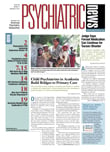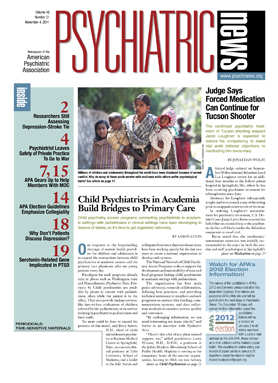The 2012 APA election cycle has just begun. Members are encouraged to participate in the election and to educate themselves on the applicable rules of conduct approved by the APA Board of Trustees (see
APA Election Guidelines for Candidates and Supporters). Candidates and supporters are advised to be respectful, not to criticize each other, and to show restraint in distributing campaign materials.
Guidelines prescribing members' election-related activities were established by the Board in the early 1970s, when APA began having contested elections. Campaigning restrictions were adopted initially to address four major concerns: (1) massive campaign efforts "buying" an election win, particularly if those efforts were financed by resources from outside the membership; (2) campaign committees and unwelcome bids for public support; (3) the growing distress of the membership at being deluged with campaign materials; and (4) a belief among some members that large-scale campaigning was inconsistent with their conception of APA's professional image. Since then, the guidelines have evolved incrementally, in keeping with the times, and in response to six guiding principles established by the Board in March 2000:
(1) Equity of Access: The electorate and the candidates should enjoy optimum access to each other, to meet or communicate without unnecessary encumbrances. (2) Fairness: Every qualified member should have equal opportunity to run for leadership positions in APA. (3) Collegiality: An atmosphere of collegiality should be promoted among candidates and among members. (4) Candidate Engagement: Candidates should be involved in interpreting rules that affect their campaign. (5) Membership Engagement: The election process should arouse members' interest in and knowledge of APA affairs and foster optimum ballot returns. (6) Economic Principle: The candidates and APA should collaborate to find and utilize the most economic means of conducting the election campaign in terms of time and money.
The APA Elections Committee serves to educate candidates and other members about election procedures, suggest improvements to the guidelines for the Board to consider, monitor election activities, and report violations of the guidelines to the Board. Two of the most frequent violations of the guidelines are beginning campaigning early (before the announcement of the Nominating Committee's selection of candidates) and e-mailing campaign messages without the required "APA Campaigning" at the start of the subject line, a courtesy that helps recipients to sort out campaign e-mails.
The Board is considering significant revisions to the election guidelines for improved clarity, simplicity, and support of principles that the guidelines are intended to serve. However, the proposed revisions will not apply for the 2012 election, so social networking for campaign purposes (Facebook, Twitter, blogs, and similar interactive media) is not allowed during this election cycle. Information about the proposed guidelines can be accessed at <
http://apamember.wordpress.com/2011/10/>. You are invited to post your comments.
This article was prepared by APA's Elections Committee.

